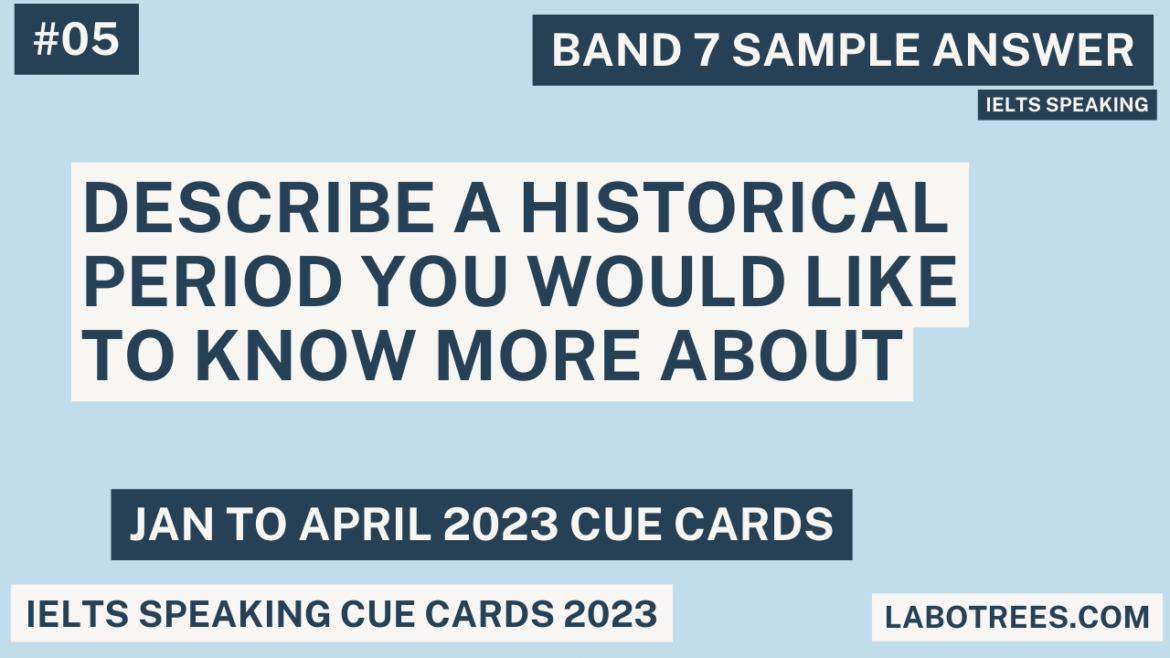Describe a historical period you would like to know more about
What period do you want to know about
Why do you want to know about it
How do you think you can know about it
Sample Answer:
- The historical period that I would like to know more about is the British era in India.
- I am particularly interested in learning about the impact of British rule on India’s culture, economy and politics.
- I want to know more about this period because it is an important part of India’s history.
- This era had a significant impact on shaping the country as it is today.
- Also, this period of history is not only significant for India but also for the world as it had a profound effect on shaping the global political and economic landscape.
- I am interested in understanding the various aspects of this period such as the British East India Company, ]British policies, Indian resistance, economic exploitation, and cultural exchange.
- To know more about this period, I plan to read various books and articles written by historians and scholars.
- I will also visit historical sites and museums related to this period.
- I plan to watch documentaries and films about the British era in India.
- And also, I would like to research the primary sources such as government records, letters, journals and newspapers of the time.
- I will also look into the works of Indian and British writers, poets, and artists.
- People who lived during this period will help me to gain a deeper understanding of their perspectives.
- In conclusion, I am interested in learning more about the British era in India because it is an important and fascinating period in world history.
- I plan to gain knowledge about this period by reading books and articles, visiting historical sites, watching documentaries, researching primary sources and studying the works of writers and artists of that time.
Follow Ups:
1. Do you think nowadays children are learning too much about history?
I think that the amount of history that children are learning nowadays can vary depending on the educational system and curriculum of a specific country. In some cases, children may be learning too much history while in other cases they may not be learning enough. It is important for educators to strike a balance and provide children with a comprehensive understanding of the past.
2. How can people get reliable historical information?
To get reliable historical information, people can read books and articles written by reputable historians and scholars. They can also visit museums and historical sites, which are often curated by experts in the field. Additionally, primary sources such as government records, letters, and journals can also provide a wealth of information. It’s always good to cross check the information from multiple sources and consult experts in the field.
3. Do people in India like to visit museums?
I think that some people in India may enjoy visiting museums, while others may not. It can depend on the individual’s personal interests and preferences.
4. Who do you think likes to go to museums more – children or adults?
I think that both children and adults can enjoy visiting museums, but it may depend on the type of museum and the exhibits on display. Children may enjoy interactive exhibits and hands-on activities, while adults may prefer more in-depth and scholarly exhibits.
5. Do you think museums should be free of cost to enter?
I think that museums can play an important role in educating the public and preserving cultural heritage. While they require funding to operate, I believe that making museums free of cost to enter can make them accessible to a wider audience.
6. Do you think local people and tourists should pay the same amount to enter a museum?
I think that local people and tourists should have different pricing options. Local people might have regular access to the museum and therefore a lower entry fee would be appropriate. Tourists, on the other hand, might only be visiting once and therefore a higher entry fee would be reasonable.
Here is the list of the latest cue cards which are released every four months.
Click here to see the latest cue cards list
IELTS exam is conducted all around the world and there are two types of exam Academic and General exam. Many people join IELTS preparation classes or coaching centres to improve their English skills. This helps many candidates to increase their band scores. On labotrees, you can IELTS preparation material for free.

